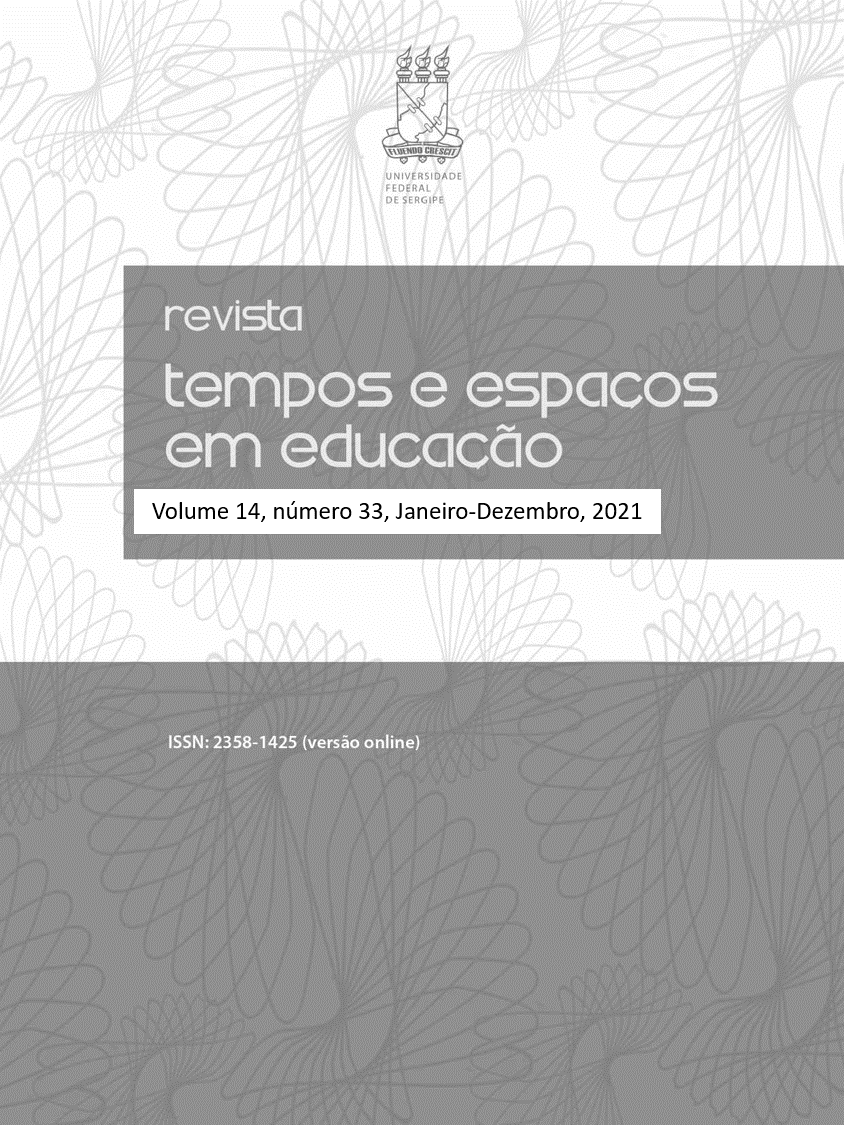Estágios estrangeiros como fator de desenvolvimento profissional de professores de línguas estrangeiras
DOI:
https://doi.org/10.20952/revtee.v14i33.15125Palavras-chave:
Cultura organizacional, Comunidade de aprendizagem professional, Eficácia do professor, Estágios no exteriorResumo
O objetivo do estudo é encontrar formas de expandir a eficácia do professor por meio da participação em estágios no exterior. Métodos de pesquisa foram usados para coletar os dados dos alunos. Estatísticas descritivas foram usadas para examinar as tendências gerais no desenvolvimento profissional dos professores de línguas estrangeiras. Assim, passar um estágio no exterior leva ao desenvolvimento e aprimoramento das competências linguísticas, profissionais e culturais não apenas dos professores, mas também dos alunos; melhorar as habilidades dos professores, sua motivação; aumentar não só o prestígio da organização educacional, mas também a atividade de publicação de funcionários universitários em publicações científicas mundiais; melhoria das tecnologias educacionais. E o mais importante, os alunos, como participantes diretos do processo educacional, estão mais do que satisfeitos com seus resultados. O artigo é de interesse dos professores de línguas estrangeiras.
Downloads
Referências
Borg, S. (2018). Evaluating the impact of professional development. RELC Journal, 49(2), 195–216.
Borko, H. (2014). Professional development and teacher learning: Mapping the terrain. Educational Researcher, 33(8), 3-15.
Boudersa, N. (2016). The Importance of Teachers' Training Programs and Professional Development in the Algerian Educational Context: Toward Informed and Effective Teaching Practices. Expériences Pédagogiques, 1, 1-14.
Cambridge Professional Development Qualifications. (2018). Retrieved from: http://www.cie.org.uk/cambridge-professional-development/professional-development-qualifications/
Darling-Hammond, L., Chung Wei, R., Andree, A., & Richardson, N. (2019). Professional learning in the learning profession: A status report on teacher development in the United States and abroad. Oxford: National Staff Development Council.
Dufour, R., & Eaker, R. (2008). Professional learning communities at work: Best practices for enhancing student achievement. Bloomington: Solution Tree.
Fullan, M.G. (2011). The New Meaning of Educational Change. New York: Teachers College.
Fullan, M.G., & Miles, M. B. (2012). Getting Reform Right: What works and what doesn’t. Phi Delta Kappan, pp. 745-752.
Garet, M., Porter, A., Desimone, L., Birman, B., & Yoon, K.S. (2011). What Makes Professional Development Effective? Results from a National Sample of Teachers. American Educational Research Journal, 38(4), 915–945.
Glattenhorn, A. (2017). Cooperative professional development: Peer centered options for teacher growth. Educational Leadership, 3(45), 31-35.
Guskey, T.R. (2010). Evaluating professional development. Thousand Oaks: Corwin Press.
Nascimento, L. F. do, & Cavalcante, M. M. D. (2018). Abordagem quantitativa na pesquisa em educação: investigações no cotidiano escolar. Revista Tempos e Espaços em Educação, 11(25), 249-260.
Nystrand, M., & Gamoran, A. (2011). Instructional discourse, student engagement, and literature achievement. Research in the Teaching of English, 25(3), 261-290.
Nzarirwehi, J. (2019). In-Service Teacher Training and Professional Development of Primary School Teachers in Uganda, IAFOR Journal of Education, 7(1), 19-36.
Oliveira, E. S., & Barreto, D. A. B. (2020). Contemporary studies on knowledge, teaching in higher education and social representations in Brazil. Journal of Research and Knowledge Spreading, 1(1), e11585.
Santos, I. T. R., Barreto, D. A. B., & Soares, C. V. C. O. (2020). Formative assessment in the classroom: the dialogue between teachers and students. Journal of Research and Knowledge Spreading, 1(1), e11483.
Silva, F. O., Alves, I. S., & Oliveira, L. C. (2020). Initial teaching training by homology in PIBID: experiential learning from professional practice. Journal of Research and Knowledge Spreading, 1(1), e11638.
Silva, C. V. S., & Santos, G. O. (2020). Digital interfaces: a methodological proposal as a strategy of teaching and learning in Mathematics classes. Journal of Research and Knowledge Spreading, 1(1), e11651.
Richards, J.C., & Farrel, T.S.C. (2012). Professional Development for Language Teachers: Strategies for Teacher Learning. Cambridge: Cambridge University Press.
Vu, P., Cao, V., Vu, L., & Cepero, J. (2017). Factors driving learner success in online professional development. The International Review of Research in Open and Distance Learning, 15(3), 120–139.
Zaslow, M. (2014). General features of effective professional development. Preparing early childhood educators to teach math. Baltimore: Brookes Publishing.
Downloads
Publicado
Como Citar
Edição
Seção
Licença
À Revista Tempos e Espaços em Educação ficam reservados os direitos autorais pertinentes a todos os artigos nela publicados. A Revista Tempos e Espaços em Educação utiliza a licença https://creativecommons.org/licenses/by/4.0/ (CC BY), que permite o compartilhamento do artigo com o reconhecimento da autoria.



